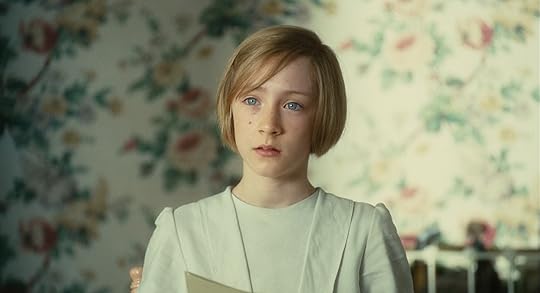The Truth About Memory and Character.
Let’s face it—memory is a trickster.
Just ask Raynor Winn, author of the bestselling memoir The Salt Path, who’s been making headlines not for her poetic prose but for the poetic license she may have taken with the truth.
Her story of homelessness, framed as the fallout from a bad financial investment and cruel legal fate, is now under scrutiny. Investigations suggest that a repaid loan under fuzzy circumstances may have played a role.
Deliberate or not, this literary kerfuffle opens the door to a juicy discussion: in storytelling—especially fiction—what role does memory play? And why does it matter so much?
Memory is never a neutral record. Even in real life, it’s messy—part truth, part emotion, part wishful thinking. In fiction, this complexity becomes a goldmine. Characters aren’t built just from what happened to them, but from what they think happened, what they wish had happened, or what they refuse to admit happened.
Their memories—whether tender or traumatic, accurate or altered—are often the beating heart of who they are.
In fiction, memory is more than backstory—it’s identity, motivation, conflict, and theme all rolled into one.
So let’s dive into seven fascinating ways memory fuels character development, and how it can make your storytelling not just better, but unforgettable.

#1 – Memory = Instant Backstory with Feeling.
Every character has a past. But here’s the secret sauce: how they remember the past is where things get juicy.
A straightforward backstory might give you facts—”her parents divorced,” “he failed out of school,” “they lost someone they loved.” But facts don’t shape character—feelings do. That’s where memory comes in.
Memory is emotional. It’s selective. It’s a story we tell ourselves about the story that happened. And it reveals more about the character than the event itself ever could.
Take Charlie in The Perks of Being a Wallflower. His memories don’t arrive like a neatly typed diary.
They creep in, scattered and incomplete. As readers, we feel the emotional truth of his confusion and pain long before the traumatic memory at the core is revealed. And when it is, it’s not just an “aha” plot moment—it’s the emotional key that unlocks everything about him.
Characters defined by memory don’t just have depth—they earn it.
 #2 – The Glorious Mind Games of Unreliable Memory.
#2 – The Glorious Mind Games of Unreliable Memory.
Memory is not a reliable narrator—and neither are many of our most intriguing characters.
There’s a reason writers love an unreliable narrator: it invites the reader to become a detective, sifting through memories like breadcrumbs on a dark trail.
But what makes this trope even richer is when the unreliability isn’t just a plot device—it’s part of the character’s emotional architecture.
Think of Memento, Christopher Nolan’s brain-scrambler of a film. Leonard, our protagonist, suffers from short-term memory loss. He tattoos clues on his body, leaves himself notes, and lives in a world of perpetual confusion. But here’s the kicker: he’s not just a victim of faulty memory. He’s manipulating his own memory—lying to himself to give his life meaning.
That’s storytelling dynamite. A character who alters memory to cope, to survive, to justify—isn’t just intriguing. They’re human. Deeply, darkly, heartbreakingly human.

#3 – Trauma: The Memory That Doesn’t Want to Be Remembered.
Some memories don’t surface—they hide. They fracture. They scream from under the floorboards.
Trauma rewires the brain. It buries moments too painful to face and distorts others in ways that feel safer but are rarely true. In fiction, this becomes a powerful engine for character development.
Take Camille in Sharp Objects. Her return to her childhood home triggers a psychological landslide. The memories are there—waiting—but they don’t come gently. They crawl out in flashbacks, sensations, and self-destructive habits. Her story isn’t a linear journey—it’s a spiral inward.
Characters who suppress trauma are like haunted houses: everything looks intact, but the walls are whispering. And when they finally face what they’ve buried? That’s when the real transformation begins.

#4 –
Nostalgia: The Sweet, Sugary Lie
Not all memory is dark. Some of it is dipped in glitter and gold, and just as misleading.
Nostalgia is the emotional filter of memory on Instagram. It’s warm. It’s glowing. And often, it’s a total fantasy. However, that fantasy reveals volumes about what a character values, misses, or wants to escape.
Look at Midnight in Paris. Gil pines for the 1920s, romanticising it as the pinnacle of creativity and glamour.
But when he travels back in time (as one does), he discovers that even the 1920s crew was nostalgic for an earlier era. It’s a Russian doll of discontent.
Characters clinging to the past aren’t weak—they’re longing. That longing is emotional rocket fuel.
What are they avoiding in the present? What dreams did they lose along the way?
Those questions lead to rich arcs and bittersweet resolutions.

#5 – Rewriting the Past (A.K.A “Emotional Editing”).
We all do it—tweak a memory here, soften an edge there. It’s not lying exactly. It’s… self-preservation. Or maybe self-delusion.
Or sometimes, it’s growth.
In fiction, memory isn’t just something characters possess—it’s something they edit as they evolve. And that evolution is the story.
Eternal Sunshine of the Spotless Mind is the ultimate meditation on emotional editing.
Joel and Clementine undergo a procedure to erase each other after a painful breakup. But mid-process, Joel decides he wants to keep the memories—even the sad, bitter ones. Because without them, he’s not fully himself.
Characters who wrestle with their memories, who choose to reshape the past not by pretending it didn’t happen but by finding new meaning in it—those are characters we root for.
It’s the emotional equivalent of editing your life’s screenplay—and keeping the bloopers in.
 #6 – Inherited Memory: The Ghosts We Carry.
#6 – Inherited Memory: The Ghosts We Carry.
Not all memories are our own. Some are passed down like heirlooms—silent, heavy, and hard to shake.
Inherited memory can be cultural, generational, or familial. It shapes characters not just through what they experienced, but through what their parents, communities, or ancestors did.
In Atonement, Briony grows up burdened not just by her own guilt over a childhood mistake, but by the weight of the social class expectations and moral codes of her family and era. Her entire adult life—and writing career—is shaped by this need to rewrite or reconcile a past that shaped her, even if she was too young to grasp it at the time fully. She carries not only her own memory of the event but also the emotional fallout that ripples across generations.
This type of memory builds characters who are haunted not by ghosts, but by expectations. It asks hard questions: Can we escape our histories? What parts of the past are ours to carry—and which can we finally put down?

#7 – The Remix: Evolving Memory = Character Growth.
Here’s the satisfying payoff: when a character’s memory shifts, so does their identity. Not because the past changed, but because they did.
Growth isn’t about forgetting the past.
It’s about reframing it.
Beth Harmon in The Queen’s Gambit begins by seeing her mother’s death as abandonment.
But as she matures, she begins to understand her mother’s pain, her instability, her love tangled in tragedy. The memory hasn’t changed—but Beth has. And that change echoes through everything she becomes.
This evolution turns memory into a mirror: one that reflects not where the character was, but how far they’ve come.
Curtain Call: Why Memory Matters (A Lot).The Raynor Winn controversy reminds us that memory is never just about facts—it’s about framing.
It’s stitched together with emotion, need, fear, and hope. And in fiction, that’s a feature, not a bug.
So, dear writer: when shaping your character’s past, don’t just ask, “What happened?” Ask:
What does your character believe happened?What have they chosen to forget—or misremember?What stories are they telling themselves, and why?How does their memory protect or sabotage them?And most importantly: how do those memories evolve?Memory isn’t a dusty archive—it’s a living, breathing force in your character’s life. It can inspire love, fuel revenge, break hearts, or build hope. Use it well, and you’ll have readers remembering your characters long after the last page.
Now go forth and write gloriously complicated, memory-laden people. And if you forget how? Don’t worry. That just makes it more realistic.
Now it’s YOUR turn – What’s one memory your favourite character would erase if they could?
Would love to get your input in the comment box below.
The post The Truth About Memory and Character. appeared first on Vered Neta.



